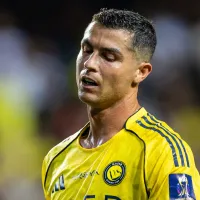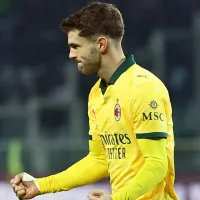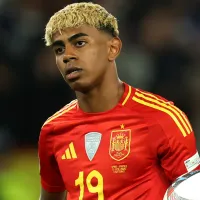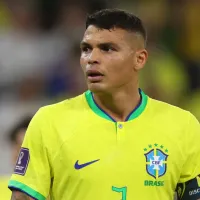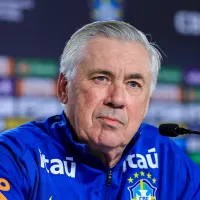On the European Continent and on the British Isles the view of the Olympic football Tournament is completely different than in the rest of the world. In Europe the tournament is seen as more of a nuisance than anything, while among those in the Western Hemisphere and in Africa it is seen as big deal.
Nigeria and Cameroon are both recent champions of the event, and after both nations achieved their Gold Medals, mass celebrations consumed the nation. Mexico fired its national coach, the biggest hero in Mexican football history Hugo Sanchez because he failed to qualify the team for the Olympics, despite a month earlier, achieving the nation’s first result on American soil against the arch rival United States in nine years. Brazil’s Dunga has survived a tumultuous World Cup qualifying campaign thus far, because he is seen as the man to bring home an Olympic Gold Medal, and Brazil did not want to change coaches so soon before the Olympics.
The United States puts more emphasis on Olympic Football than any tournament outside of the World Cup, and because for years the Olympics themselves were used as a propaganda tool by the USA, I’ve heard debate within American soccer circles as to whether or not winning the Olympic Gold Medal would actually do more for the game domestically than winning the World Cup. While I do not subscribe to this view in the least bit, it simply demonstrates how important the Olympic tournament is considered to many people. In fact, one of the best forwards then United States has ever produced, Brian McBride has come out of international retirement just for this event, because of its importance to US Soccer. Tim Vickery, who understands Latin Football better than just about any European writer, explains why this event is so important to so many in an outstanding piece.
But European clubs for the most part are more annoyed and bothered by this event than they are interested in it. Liverpool is losing more than just about any club on the planet. Ryan Babel will be featuring for Holland, Javier Mascherano for Argentina, and Lucas for Brazil. This puts the Reds behind the eight ball in the first few weeks of the Premier League season. Rafa Benetiz isn’t happy about it, but unlike some of the clubs in Germany, Liverpool understands that FIFA’s declaration that all selected U-23 players must be released is to be honored. But even more admirable is that Liverpool has released Mascherano, who is an overage player and whose release Liverpool legally could have prevented.
Chelsea has released Solomon Kalou. Blackburn has released Ryan Nelson (an overage player) and Manchester United has allowed Anderson to join Brazil. However two German clubs are refusing to release their Brazilian players: Werder Bremen with Diego, perhaps the best player in the Bundesliga last season, and Schalke with Rafinha. Both players left their clubs this week without permission to join Brazil’s training. This stands in contrast not only to the example set by the three aforementioned English clubs, but by AC Milan who just signed Ronaldinho and have made him the center of a major worldwide marketing campaign. Despite this, Milan has allowed Ronaldinho to join Brazil’s squad, perhaps because Italian clubs are more used to this situation than other European clubs: Italy has competed in more Olympic Football tournaments than any other nation. (Believe it or not, the United States has qualified for the second most Olympic Football tournaments, and would tied with Italy for the most appearances had the US not barely missed qualification for the 2004 tournament).
What’s even more disturbing are the lengths the two German clubs are going to in order to try and stop players from exercising their free will and representing their country. The Court of Arbitration for Sport will hear a case being brought before it by the clubs and backed by the European Club Association to block U-23 players from joining their national teams in the Olympics. Werder Bremen has also refused to allow Dusko Tosic of Serbia to join his team and has reportedly confiscated his passport.
Olympic football is very important to many across the globe. As European clubs become more and more global in both their squad makeup and in their marketing they must learn to bend on these sorts of issues. Liverpool to their credit has reluctantly complied as they continue to try and build their global brand. The German clubs, already in a league whose international stature is waning have made a fatal mistake in the court of international football public opinion with their unreasonable stand. Though many in Europe whose focus is the club game and European tournaments may applaud Schalke and Bremen for their stands, the Bundesliga is no doubt soon to take a major beating in perception and respect level in Latin America.
While Olympic Football takes place outside the regular FIFA blackout windows, clubs in Europe must understand the importance of this event and also assume the risk for signing high profile internationals. Liverpool, as a more popular and successful club from an international standpoint clearly understands this better than Werder Breman and Schalke 04. Perhaps this helps to explain why the Premier League is head and shoulders above the Bundesliga these days when it comes to international recognition and popularity.


